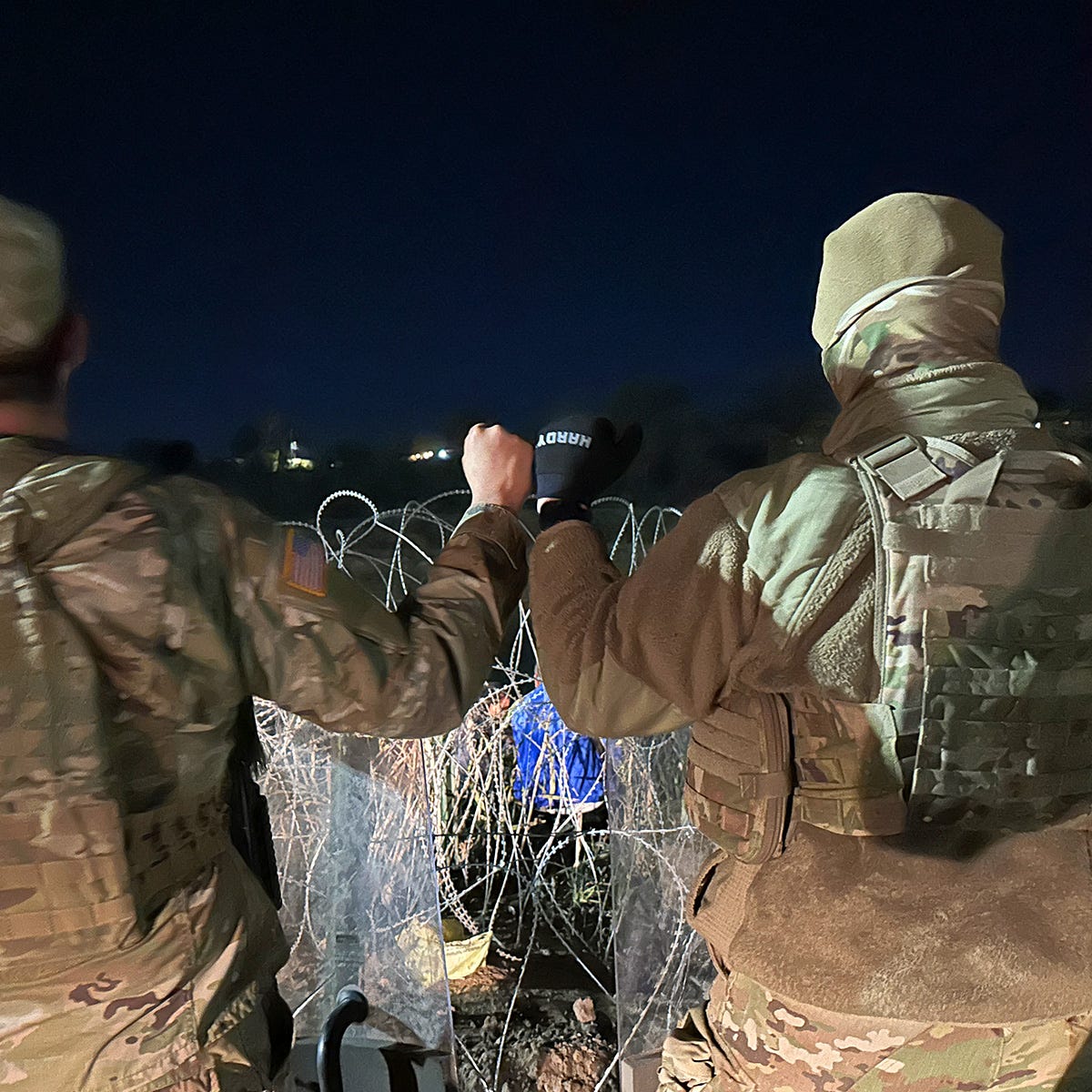This is the latest information coming from the southern border standoff.
I am making this free for everyone. Please consider becoming a subscriber for $5 a month to help support my independent journalism.
In a continued defiance of President Joe Biden's border policies, Texas is taking matters into its own hands by offering cash incentives to members of the Texas Military Department (TMD) to bolster border security efforts. The Lone Star State aims to deploy military assets to high-threat areas to prevent criminal organizations from illegally transporting drugs and people into Texas, according to the TMD's website.
Governor Greg Abbott's initiative, Operation Lone Star, seeks to combat the surge in illegal immigration, and volunteers working full-time with the TMD can earn up to $55 per day. The call for additional volunteers is part of an escalating showdown between Texas and the Biden administration over border control.

This move comes on the heels of a recent Supreme Court decision siding with the Biden administration, asserting that federal Border Patrol agents have the authority to remove razor wire installed under Abbott's orders near the border city of Eagle Pass. Despite the court's ruling, Abbott remains steadfast, insisting that the wire serves as an "effective deterrent against illegal border crossings" and continues to be deployed.
As tensions persist, Texas seeks to reinforce its border security efforts through financial incentives, further intensifying the clash between the state and the Biden administration over immigration policies. Newsweek has reached out to Abbott's office and the Biden administration for additional comments.




















